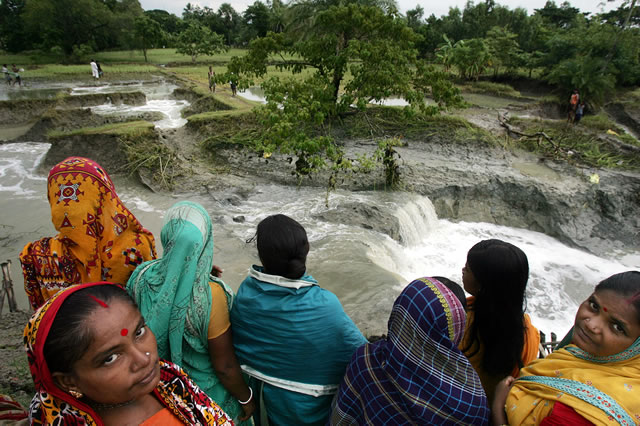As the year 2010 draws to a close, Mary Robinson delivered an academy discourse at the Royal Irish Academy on Monday 20 December.
– Mary Robinson, 20 December 2010
As the year 2010 draws to a close, Mary Robinson delivered an academy discourse at the Royal Irish Academy on Monday 20 December. The purpose of the discourse was to take stock of the meager progress we are making on one of the world’s greatest human rights challenges: climate change.
Climate Change is a problem that originates in the discipline of science, but whose solutions span many areas, including international relations, law, economics, technology innovation, social change theory and many more. A far greater concerting of effort is required across sectors and nations – and a focus on opportunities as well as threats – to tackle climate change successfully in this decade and beyond. As Mary Robinson noted in her remarks, a Climate Justice approach provides the conceptual foundations for this way forward.
During the discourse, Mary Robinson looked back on the two most recent UN Climate Change Conferences – the 2009 COP in Copenhagen, Denmark and the 2010 COP which took place in recent weeks in Cancún, Mexico.
“What struck me when I was in Copenhagen for COP15 last year was the fact that the humanitarian dimension of climate change was not central to the formal discussions and negotiations… The focus on mitigation was entirely justifiable as the main challenge, but it became clear that because poor people and countries are not part of the problem of causing emissions, nor were they central to the negotiations at COP15.”
“When I arrived in Cancún on 4th December this year, the hope was that COP16 would produce meaningful progress on some of the key issues, so that a balanced ‘package’ of outcomes could be agreed. These issues included mitigation, adaptation, financing, technology, reducing emissions from deforestation and forest degradation in developing countries – including conservation, sustainable management of forests and enhancement of forest carbon sinks (REDD+), together with monitoring, reporting and verification (MRV) and international consultation and analysis (ICA).”
However, Mary Robinson also noted how the concept of Climate Justice incorporates a strong gender perspective:
“Women make up the majority of the world’s poorest people, and given existing gender inequalities and development gaps, climate change ultimately places a greater burden on them… (In) Africa, for example… women are the primary food producers and providers of water and cooking fuel for their families, while having greater responsibility for family and community welfare.”
“In September we (had) convened a meeting in New York on Women’s Leadership on Climate Justice: Planning for Cancún and Beyond. This resulted in a network of about 65 women from different perspectives – government, civil society, business, grassroots and indigenous, who shared common goals. We then planned two side events in Cancún. The first was on women’s leadership from the grassroots perspective… The second required the co-operation of the Government of Mexico, as we wanted to convene key women ministers attending Cancún.
“Ambassador Luis de Alba, the Mexican Special Envoy on Climate Change, readily agreed that the Mexican Government would co-host with the Foundation a side event ‘Women Leaders on Climate Change’, which took place two days after the grassroots meeting.”
Participants at this special side-event included Patricia Espinosa, Mexican Minister of Foreign Affairs and President of COP 16, Christiana Figueres, Executive Secretary of the UNFCCC, Connie Hedegaard, European Commissioner for Climate Action, and the Ministers from Denmark and Uruguay.
“In order to continue the dialogue, and respond to the pressure for a strong gender perspective, it was decided to borrow the European model and to develop a ‘Troika +’ of women leaders on gender, led by the Ministers from Denmark, Mexico and South Africa, leading to COP 17 in Durban at the end of next year.”
Concluding by looking forward to how the people of Ireland and other developed countries might begin to see climate change mitigation and adaptation as their responsibility, Mary Robinson posed the question: “Will we hold our own leaders accountable for addressing climate change?”
“I have no doubt that the answer is yes – but only if we look at climate change as an opportunity as well as a threat.”
Related Links:
Download full speech by Mary Robinson [12 pages, 219kb]


